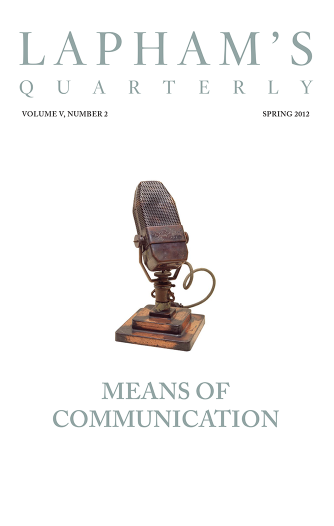Th’ Arch-Enemy,
And thence in Heav’n called Satan, with bold words
Breaking the horrid silence thus began:
If thou beest he (but O how fall’n! how changed
From him who in the happy realms of light
Clothed with transcendent brightness didst outshine
Myriads, though bright!), if he whom mutual league,
United thoughts and counsels, equal hope
And hazard in the glorious enterprise
Joined with me once (now misery hath joined
In equal ruin), into what pit thou seest
From what heighth fall’n, so much the stronger proved
He with His thunder (and till then who knew
The force of those dire arms?), yet not for those
Nor what the potent Victor in His rage
Can else inflict do I repent or change,
Though changed in outward luster, that fixed mind
And high disdain from sense of injured merit
That with the Mightiest raised me to contend
And to the fierce contention brought along
Innumerable force of spirits armed
That durst dislike His reign and, me preferring,
His utmost pow’r with adverse pow’r opposed
In dubious battle on the plains of Heav’n
And shook His throne. What though the field be lost?
All is not lost: th’ unconquerable will
And study of revenge, immortal hate
And courage never to submit or yield—
And what is else not to be overcome?
That glory never shall His wrath or might
Extort from me: to bow and sue for grace
With suppliant knee and deify His pow’r
Who from the terror of this arm so late
Doubted His empire! That were low indeed,
That were an ignominy and shame beneath
This downfall, since by fate the strength of gods
And this empyreal substance cannot fail,
Since through experience of this great event,
In arms not worse, in foresight much advanced,
We may with more successful hope resolve
To wage by force or guile eternal war
Irreconcilable to our grand Foe
Who now triumphs and in th’ excess of joy
Sole reigning holds the tyranny of Heav’n.
From Paradise Lost. Readers of Milton’s epic poem, first published in 1667, have long had divided allegiances regarding its biblical feud; William Blake, who illustrated the work, said Milton was “of the devil’s party without knowing it” and that God’s language was “flat, uncolored, unmetaphorical.” Centuries later C.S. Lewis wrote, “Many of those who say they dislike Milton’s God only mean that they dislike God.” In 2017 the writer and scholar Ed Simon argued that Lucifer remains relevant as “a kind of modern American antihero, invented before such a concept really existed.”
Back to Issue



